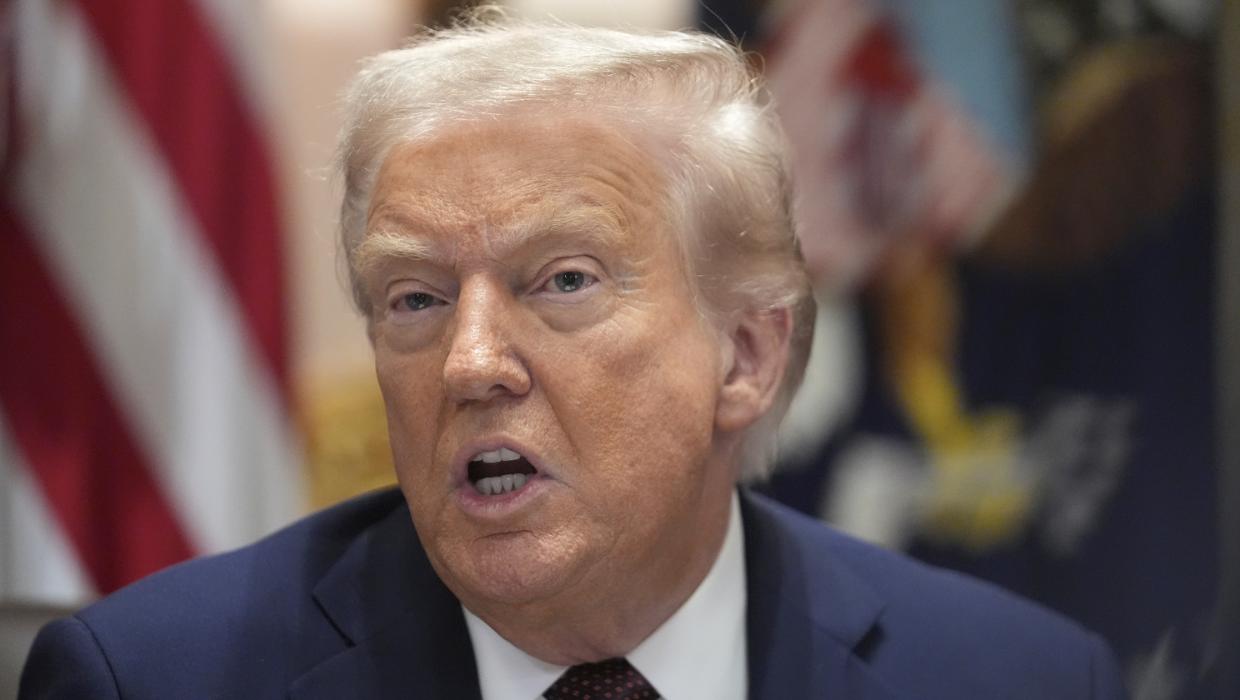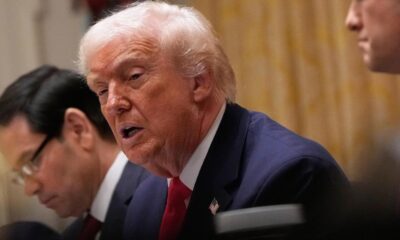Politics
Trump Blocks $4.9 Billion in Foreign Aid Using Rare Maneuver

Donald Trump has taken a significant step by blocking $4.9 billion in foreign aid that had previously received approval from Congress. This action utilizes a legislative maneuver not seen in nearly 50 years, raising questions about the potential implications for executive power and budgetary authority in the United States.
The decision was announced on October 15, 2023, with the White House asserting that the funds would not be disbursed due to concerns over how they would be utilized. This move could set a precedent, allowing the president to bypass Congress in future spending decisions, which has traditionally been a legislative responsibility.
The funds in question were earmarked for various international programs, including security assistance for allied nations and humanitarian efforts. By blocking this aid, the Trump administration indicates a shift in foreign policy priorities, possibly reflecting a more isolationist approach.
Implications of the Blockade
Critics argue that this tactic undermines the checks and balances established by the U.S. Constitution. The use of this maneuver could lead to increased tension between the executive branch and Congress, particularly if it becomes a standard practice.
Historically, similar actions have been rare. The last instance of a president successfully blocking appropriated funds occurred in the 1970s, highlighting the unusual nature of this decision. Legal experts are now debating the ramifications of Trump’s actions, which may encourage future presidents to follow suit, further expanding executive power.
Supporters of the decision maintain that the president is exercising his constitutional authority to prioritize national interests. They argue that the funds could potentially be better allocated to domestic programs or other international initiatives deemed more beneficial to U.S. interests.
Future Outlook
As Trump’s administration continues to navigate complex geopolitical landscapes, the long-term effects of this maneuver remain uncertain. Lawmakers from both sides of the aisle are now contemplating potential legislative responses to curb executive overreach in budgetary matters.
In the coming weeks, Congress may seek to address the implications of this decision, potentially introducing measures to reaffirm its role in approving foreign aid. The ongoing debate will likely shape the future of U.S. foreign policy and the balance of power between the legislative and executive branches.
In summary, Trump’s blockade of $4.9 billion in foreign aid marks a pivotal moment in U.S. governance. As the political landscape shifts, the consequences of this maneuver will resonate through the halls of Congress and beyond, influencing how foreign aid is managed in the future.
-

 World2 weeks ago
World2 weeks agoPrivate Funeral Held for Dean Field and His Three Children
-

 Top Stories2 weeks ago
Top Stories2 weeks agoFuneral Planned for Field Siblings After Tragic House Fire
-

 Sports3 months ago
Sports3 months agoNetball New Zealand Stands Down Dame Noeline Taurua for Series
-

 Entertainment3 months ago
Entertainment3 months agoTributes Pour In for Lachlan Rofe, Reality Star, Dead at 47
-

 Entertainment2 months ago
Entertainment2 months agoNew ‘Maverick’ Chaser Joins Beat the Chasers Season Finale
-

 Sports3 months ago
Sports3 months agoSilver Ferns Legend Laura Langman Criticizes Team’s Attitude
-

 Sports1 month ago
Sports1 month agoEli Katoa Rushed to Hospital After Sideline Incident During Match
-

 World3 weeks ago
World3 weeks agoInvestigation Underway in Tragic Sanson House Fire Involving Family
-

 Politics2 months ago
Politics2 months agoNetball NZ Calls for Respect Amid Dame Taurua’s Standoff
-

 Top Stories2 weeks ago
Top Stories2 weeks agoShock and Grief Follow Tragic Family Deaths in New Zealand
-

 Entertainment3 months ago
Entertainment3 months agoKhloe Kardashian Embraces Innovative Stem Cell Therapy in Mexico
-

 World4 months ago
World4 months agoPolice Arrest Multiple Individuals During Funeral for Zain Taikato-Fox





















